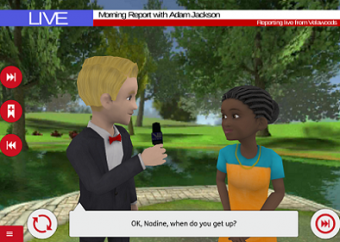
By Elisabetta Lando
This note to students has been circulating around on different social media for years now (origin unknown!) but it always makes me chuckle.
Dear Students,
I know when you’re texting in class. Seriously, no-one just looks down at their crotch every five minutes and smiles.
Sincerely,
Your Teacher
The above is written for amusement, but does highlight an often serious concern; many people still feel that mobile phones are a disruption to learning. Only recently at a training event in a group discussion a newly qualified language teacher said that she was not happy when her learners reached for their phones to look up the meanings of new words. She felt that online dictionaries rarely translate the meaning accurately, lead the learners off into the wrong direction as well as undermine her careful lesson planning. We all agreed with having felt like this at times, but many of us thought that this was a great learning opportunity; using a mobile to research and develop an understanding of how to assess information on the Internet are all vital life skills.
In ESOL (English for Speakers of Other Languages) there are great examples of how mobile technology is used to support language learners. For instance, I saw a presentation by an award winning charity showcasing their work and talking about their learning philosophy. Smart phones were used to overcome barriers such as personal access to computers outside class, tackling social isolation as well as developing language, digital literacy and employability skills. I remember the presenter arguing very specifically that it was a disservice to the learners to not do this, to exploit all the learning potential that mobiles present. Also, the ability to access learning outside class is very pertinent to the many ESOL learners that have busy and sometimes unpredictable working lives; particularly those working as carers or drivers where demand for services fluctuate according to need. These are the learners who tend to miss out a lot with the more traditional college based learning. So mobile learning can mean access anytime and a powerful way to improve language skills for employability as well as social inclusion.
How can mobiles support English language learning? From using the camera to photograph work, audio recording of presentations to using calendars to make appointments; these are just some very simple but effective ideas. However, we can go further by using scenario based mobile resources that allow learners to practice skills for real life situations; such as talking to a customer or dealing with a complaint. This kind of problem based leaning has a strong pedagogical basis. It has proven to be very effective as learners can relate to these situations that they often find themselves in and so tend to retain more of what they learn. Most importantly, this approach helps to develop their confidence as they are encouraged to make mistakes and learn from them, all in a safe environment.
An excellent example of this kind of immersive learning can be seen by exploring the beginner and elementary virtual town English courses for mobile and PC use. The unique, immersive learning experience, endorsed by Cambridge University Press, offers the next best thing to living in an English speaking country. Learners develop their English language skills through living in Velawoods, a virtual UK town, where you interact (through a camera view and speech analysis) with a range of characters using engaging activities and developing story.
You can view details of these Immersive English Courses HERE
Ultimately the point around this approach is that learners are permitted to take control and apply what they learn in the real world. These are all skills that are vital for employability and in English language teaching methodology this has long been seen as a positive thing:
‘Having learners self-direct and “take charge” of the activity increases their independence and ability to apply language skills to real-world situations’ (Teaching for transfer in ELT. James, 2006).







 UK: 0844 854 9218 | International: +44 (0)1488 580017
UK: 0844 854 9218 | International: +44 (0)1488 580017








